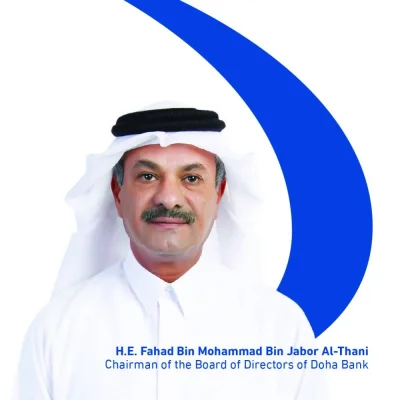Doha Bank Group CEO Dr R Seetharaman has received the Asia Business Leadership Forum “Business Economist Award” during the ABLF Leadership Weekend 2014 held from December 13 to 14 at the Armani Hotel in Burj Khalifa, Dubai.
The event carried the theme “Asia Rising: Sustainable Leadership and Development in the 21st Century” and was attended by top industrialists, policy decision makers, opinion leaders, and key decision makers from international industry and leading sovereign wealth funds and investment authorities.
Seetharaman, who received the award from the UAE Minister of Economy, Sultan bin Saeed al-Mansouri, was honoured for his outstanding contribution in financial media in areas such as economics, financial markets, banking, finance, and sustainable development through commentaries and opinions and for promoting bilateral trade and investment relationships between various countries.
The other recipients of the ABLF award include the UAE Minister of State Reem Ebrahim al-Hashmi, Family Development Foundation supreme chairwoman Shaikha Fatima bint Mubarak, former Pakistan Prime Minister Shaukat Aziz, Abu Dhabi Chamber of Commerce & Industry president Mohamed Thani Murshed Ghannam al-Rumaithi, Mashreq Bank CEO and director Abdul Aziz al-Ghurair, Saudi Arabian General Investment Authority deputy governor Prince Saud bin Khalid al-Faisal, and Emaar Economic City CEO and managing director Fahd al-Rasheed.
Seetharaman also participated in the panel session entitled “Asian Economic Zeitgesit: A focus on risks and opportunities.” He was joined by India’s former home minister P Chidambaram, Saudi Arabian General Investment Authority chief economist Dr Hatem Samman, and HSBC’s India head and director on its Asia Pacific board Naina Lal Kidwai.
Speaking in the panel, Seetharaman gave insight on Asian economies, “According to IMF October 2014 outlook, Asia pacific region is expected to remain at 5.5% in 2014 and rise to 5.6% in 2015. Asian economies have benefited from trade liberalisation, enjoyed rising income levels and have seen the emergence of a middle consumer class.”
He also highlighted how global governance has emphasised on financial inclusion. He said, “In a recent G20 meeting held in Australia, it committed to take strong practical measures to prioritise financial inclusion while also approving an updated Financial Inclusion Action Plan.”
On financial inclusion trends in Asia, Seetharaman said many countries have employed financial inclusion as an important part of their strategies to achieve inclusive growth.
In China reforms allowed the rural banking system, once dominated by state-owned banks, to diversify and enabled new market players to expand financial services to rural areas. In India, the first ever unique identification project, where identities are biometrically scanned, is enabling unbanked individuals to access credit and other banking services, he said.
He noted that the Philippines showed how technological innovations, supported by good business models and government policies, can be harnessed to deliver low-cost and efficient financial services to the poor. “Despite various initiatives the great challenge for Asia’s development is improving its citizens’ access to formal financial institutions like banks, credit unions, cooperatives, or post offices,” Seetharaman said.
He also highlighted on Asia financial integration and said, “Asian economies tend to be more financially integrated with economies outside the region than inside, particularly with regard to portfolio investment.”
He added, “The developing Asia has also attracted foreign direct investment worth $426bn in 2013 and remained the world’s leading recipient region. Further financial integration of Asian economies, both globally and regionally, should be pursued to strengthen Asia’s domestic sources of growth and improve the region’s economic resilience.”



